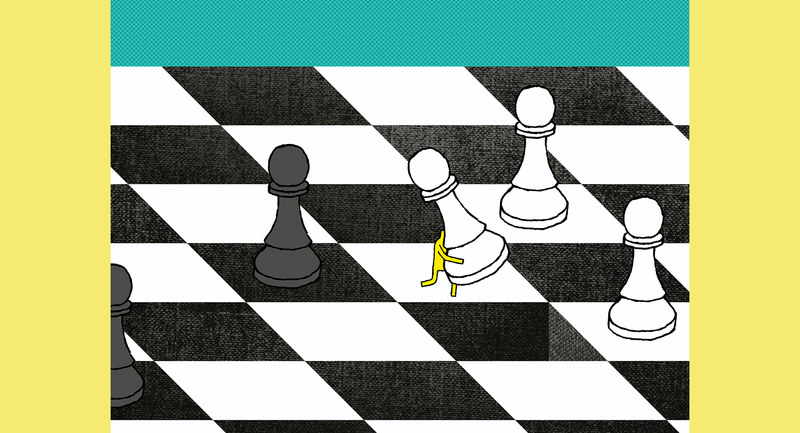I vividly remember February 19, 2016. It was a Friday, and I was looking forward to a quiet weekend. I was sitting at my desk working on a report when my phone rang. My colleague from down the hall was on the other end. "Did you see?" she asked. "Harper Lee just died. I'm so sorry. I know how much she meant to you." I thanked her for letting me know and hung up.
Then I cried. I cried for the loss of an author who had meant so much to me as a student and had given me so much as a teacher. Without To Kill a Mockingbird, would my students and I have found a common language? I looked forward each year to sharing the book with them. Year after year, I knew that we would learn more about one another and about ourselves as we experienced Scout's trials and tribulations. Harper Lee's words had been the threads that bound us together. Without her work, would I have been able to reach as many kids?
It was a time of vague optimism for some people. — Harper Lee
My kids weren't just any kids. For 16 years, I taught 9th grade English to students who were reading below grade level (3rd or 4th grade, on average), had experienced little academic success, and were considered likely to drop out of school.
I adore 9th graders. Each year, I watched as students shuffled in on the first day—most of them with the illusion that high school was a utopia where cell phones were allowed, classes were self-selected, and water bottles were encouraged. They saw this as the first step toward adulthood, toward independence.
But not all independence is created equal. For many of my 9th graders, independence was different. It meant moving one day closer to being able to drop out—to not being forced to come to this institution where they were seen as beneath other students and where they could not find ways to express their best selves. Their futures were not as optimistic as those of their classmates. Their journey through school had been a long, tedious string of failures that were simply culminating in this new, bigger school building.
English 9 consisted of canonical readings addressing the theme "a hero's journey." Standard texts included Homer's The Odyssey, Shakespeare's Romeo and Juliet, and Lee's To Kill a Mockingbird. Without exorbitant amounts of support and scaffolding, these texts were unattainable for most of my students. Regardless, we trudged through—discarding any optimistic glimmer that high school would be easier, livelier, or more natural.
You never really understand a person until you consider things from his point of view … until you climb into his skin and walk around in it. — Harper Lee
The scene played out the same way at the beginning of each year as if it had been scripted. After a relatively straightforward unit on short stories, I distributed copies of Homer's The Odyssey. Immediately, students began listing the reasons why they shouldn't have to read the whole thing—or any of it, for that matter. I assured them that together we would get through it as painlessly as possible. But it was always a struggle. There were multiple semesters when I wanted to give up—show the movie and call it a day.
However, experience taught me that we needed this unit, this struggle. We needed to learn about, understand, and trust one another. They needed assurance that I would support all of them and that I appreciated and respected their struggle. They needed to be convinced that I was not just another teacher who would leave the struggling student behind. I, in turn, needed to know that they were willing to take a risk. So off we would go on our journey through Ancient Greece to acknowledge the heroic traits in all of us.
As we read, I continually asked, Why does this matter? What does this character, who is the leader of nations and supported by gods, have to do with the here and now? How does this centuries-old tale of decision making apply to the life of a modern teenager? The questions felt rhetorical the first few days—dead silence. As I pointed to current events and examples from my own life, the students began to see connections and to use their personal narratives to discuss the journeys of their own heroes.
In the process, I learned that my students' life experiences made Odysseus's journey look like a Carnival Cruise. The majority of my students came from single-parent families, where money was a constant problem and housing was relatively transient. I realized early in my career that to successfully and thoughtfully teach my students, I needed to imagine life through their eyes, to understand their journeys. Through projects, Socratic seminars, impromptu class discussions, and private conversations, we began to understand one another, to authentically trust one another, to consider the world from one another's point of view.
I wanted you to see what real courage is. … It's when you know you're licked before you begin but you begin anyway and you see it through no matter what. You rarely win, but sometimes you do. — Harper Lee
My students came to high school knowing that they were "licked." They were aware that they couldn't read as well as their peers and that education was not tailored to their needs. But as the year progressed, they continued to show up for class. I let them know that to me, just showing up was winning. Together we created an academic community that applauded heroic attempts, celebrated successes, and learned from failures.
I concluded each year with a whole-class reading of To Kill a Mockingbird. This took courage. The size of the book? Daunting. The vocabulary? Elevated. The themes? Well, those were the easy part. Inevitably, we had touched on most of the themes throughout the year. We had openly discussed racism and its impact on society, both in the past and in the present. Divisive social classes were all too apparent in our community and far from taboo. False accusations could easily be exemplified through discussing select encounters in the principal's office. When I mentioned the final theme—a hero's journey—eyes would roll and voices would mumble "not again."
I would respond to their groans and appeals for mercy with a simple question: "Do you trust me?" As this was the end of the school year, the students and I had weathered numerous yet annually predictable calamities, from bad grades to breakups to bomb threats. My students knew I would never ask more of them than they were capable of giving and that I expected no more or less of them than I did of myself. We all knew that getting through the book would not be easy, but courageously we began.
It took only 30 seconds for my students to recognize the importance of this book to me. I began with a book talk, my words flowing at hyper speed. Inevitably, my students told me I was being dorky or that I needed to chill; it was just a book after all. I assured them that this was not "just a book." This was the book that had made me want to teach 9th grade English years ago when I was their age; therefore, this was the book that had brought us together.
I read To Kill a Mockingbird aloud. I could recite most of the book from memory, which my students agreed was quite an impressive party trick. Over the years, I crafted my voices for each character. I even wore my red-and-white striped dress to match Miss Caroline, Scout's 1st grade teacher. My students appreciated my emotional honesty as I let the laughter and tears flow naturally as I read.
In turn, the students engaged in open discussions and reflective writings. They researched the many superstitions sprinkled throughout the novel. We debated the merits of book smarts versus street smarts (or in the book's case—farm smarts). We brought in pictures of our first days of school, our favorite Halloween costumes, and our best friends. All the while we learned new vocabulary, studied dialect, and discussed the impact of point of view. By blending unintimidating personal activities with rigorous inquiry, my students were able to experience success and push themselves academically.
He would be there all night, and he would be there when Jem waked up in the morning. — Harper Lee
I have since left the classroom and now work for the Virginia Department of Education. My goal is to create schools that welcome and teach all students. My new role is great, but I long for my orange-walled classroom. I miss the crazy tales of my students. I miss their laughter, their energy, and their smiles.
On February 19, 2016, I missed them more than ever before. After my colleague informed me of Harper Lee's death, I received e-mails and messages from former colleagues, friends, and family acknowledging how powerful they knew this loss would be for me. And then messages from my former students began pouring in.
Erin, a senior in college studying microbiology, messaged me, "I'm sorry to hear about Harper Lee." As soon as she heard the news, she felt like she had to check on me, she said.
Then from Corey, a county sheriff's deputy: "I didn't realize how important that book really was until I just heard the news. P.S. Jordan, Ryan, and James (all deputies as well) say they hope you are doing OK."
Madeline, a cashier at Chick-fil-A, wrote, "Hola, chica! Sorry about H.L. Loved that book!"
And Larry, a GED candidate, said, "Yo, sorry 'bout your girl Harper. I know you were pressed on that book. It was cool."
Then I cried.
Through the evening and into the next day, the messages came. The students reflected on the power of the book, the influence of the class, and the impact that 9th grade had on their lives. My kids had come home. They verified for me that I had been successful in teaching the one lesson that I had always hoped to convey—they knew that they were important to me. They knew that after all these years, I would be there for them, and they wanted to be there for me. The relationships we had built and the trust we had invested in one another were honest and lasting. To me, there is no more worthwhile lesson to teach. At our journey's end, my students prevailed as the heroes I always knew they were.








